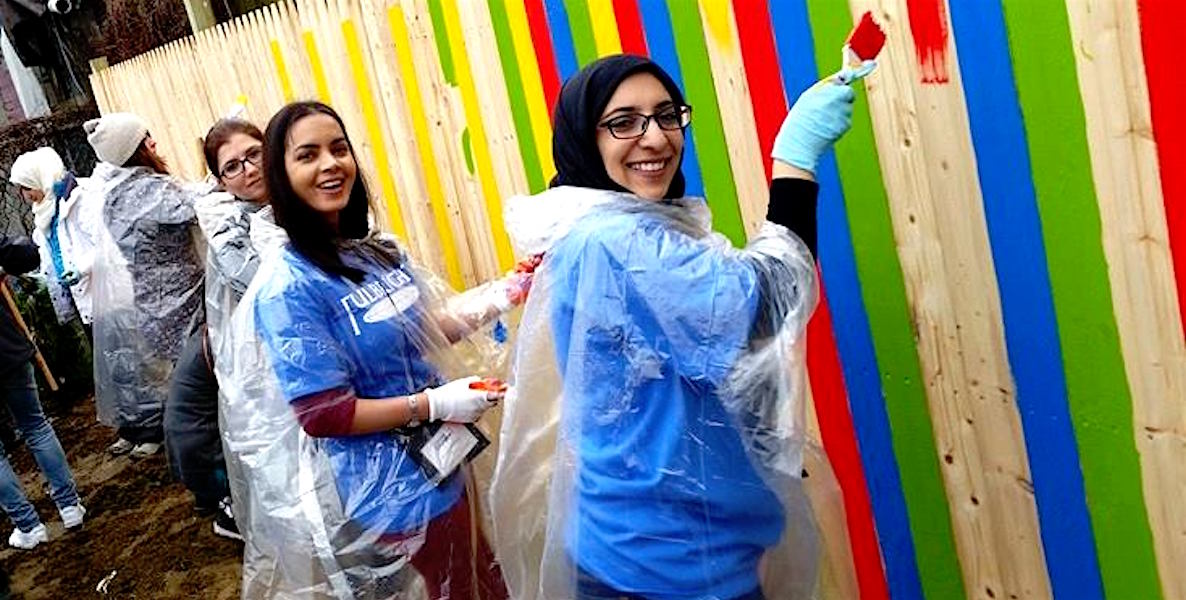There is an age-old debate within the realm of engagement: Should local governments be the ones to create change? Or is it up to the citizens to take charge?
For Stephanie Reid, the Chief Service Officer of the City’s Office of Civic Engagement and Volunteer Service (OCEVS), the answer lies somewhere in the middle.
She started with OCEVS at the crux of the Trump campaign in 2016. “People wanted to become more civically engaged at that time, especially from an advocacy standpoint,” says Reid. But they didn’t how to take that first step in inspiring change in their communities.
That’s where the City can help. This week, OCEVS will launch its Civic Engagement Academy, a series of of advanced civic engagement trainings designed to introduce Philadelphians to the principles of community organizing. This first class––Goal Setting, which will explain how to set an initial goal and a plan to achieve it––will be held tonight, and will be followed by eight other monthly classes: Asset Mapping; Timeliness and Benchmarking; Targeting and Recruitment; Data Evaluation; Volunteer Management; Community Meeting Management; Building Coalition and Media and Marketing.
“The goal is that we want people to feel empowered,” says Reid. “We want them to have the tools they need to be part of the change they want to see in their neighborhood; and we kind of want to show people how the system and government can work for them.”
During the course of an hour, those in attendance will hear lectures from city officials and community leaders; participate in a hands-on activity of some sort; and end with a discussion about how to apply what was learned to being civically engaged.
“The goal is that we want people to feel empowered,” says Reid. “We want them to have the tools they need to be part of the change they want to see in their neighborhood; and we kind of want to show people how the system and government can work for them. I think that’s really important.”
![]() The Civic Engagement Academy launched in 2010, and has taken several different forms since then, each of which is still intact. Its original version was focused on bringing different city departments, such as 311, Community Life Improvement Programs or the District Attorney’s office, into communities so that citizens could understand how to access them. Then, it became a condensed version of what it is today––one day of training to learn all there is to know about civic engagement and community organizing. Reid considers this newest version to Civic Engagement Academy 2.0.
The Civic Engagement Academy launched in 2010, and has taken several different forms since then, each of which is still intact. Its original version was focused on bringing different city departments, such as 311, Community Life Improvement Programs or the District Attorney’s office, into communities so that citizens could understand how to access them. Then, it became a condensed version of what it is today––one day of training to learn all there is to know about civic engagement and community organizing. Reid considers this newest version to Civic Engagement Academy 2.0.
“These sessions are not a stagnate set of things,” says Reid. “Rather, the sessions are constantly evolving to meet the needs of the community. We are asking questions and looking for feedback. We need to make sure that what people need is what we are offering when they come to these sessions.”
![]() To Reid, this is the role that local government should play in engagement. It needs to empower citizens by giving them the tools to lead an effort, but it can’t create that effort. For one, governments change constantly. A simple look at our nation’s political climate over the last four years could offer support for such a notion––what was important four years ago is not as important today.
To Reid, this is the role that local government should play in engagement. It needs to empower citizens by giving them the tools to lead an effort, but it can’t create that effort. For one, governments change constantly. A simple look at our nation’s political climate over the last four years could offer support for such a notion––what was important four years ago is not as important today.
Fortunately, Philadelphia’s local government supports programs such as the Civic Engagement Academy, but that isn’t to say that future administrations will champion such programs. Government efforts toward social change are not sustainable, but the tools and skills taught at the Civic Engagement Academy stick with the citizens, regardless of who is in office.
“The best thing we can do is give people the skills they will have forever,” says Reid. “Administrations change, priorities change, but a community’s effort toward change can be constant.”
Third Tuesday of every month starting April 17th, 5 pm-6pm, Municipal Services Building, 1401 JFK Boulevard, 16th Floor, Room Z. Register here.
Photo: SERVEPhiladelphia Facebook






